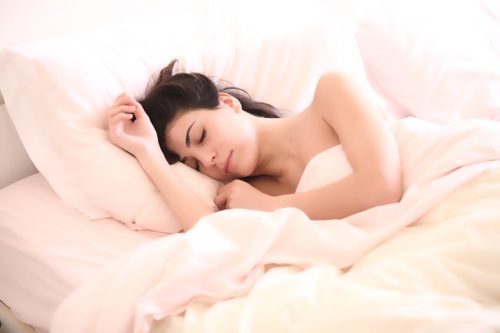 I am among the fortunate. I sleep very well most nights. However, the majority of my clients often have trouble getting a good nights sleep. In fact the Sleep Foundation studies show that nearly half of all American adults suffer from chronic long-term sleep disorders.
I am among the fortunate. I sleep very well most nights. However, the majority of my clients often have trouble getting a good nights sleep. In fact the Sleep Foundation studies show that nearly half of all American adults suffer from chronic long-term sleep disorders.
Studies show that issues with sleep greatly impact our health, our immune systems and can lead to long-term illness. Although there are many reasons for this, there are few feng shui sleeping tips that are avoidable and I urge you to try before you reach for another sleeping pill.
Feng Shui Sleeping Tips
The Yin-Yang Balance in the Bedroom
Our bedrooms are the single most important room in our lives. They should be a sanctuary for sleep. Check it out now: what is in your bedroom besides the furnishings? Is there clutter? Are there window treatments that can at least partially block light (even nighttime light from neighbors or street lights)? Does the room have enough softness? Typically rooms should be more yang (loud, bright, etc.) than yin (soft, dark, etc). But the bedroom is an exception to this rule. Our bedrooms should be soft, darker, warmer and cozier. Area rugs, lush bedding with pillows, and curtains can do the trick.
Positioning of the Bed
We talk about the bed’s positioning a lot here. Check that your bed is in what is called “command position.” It really has an impact – on a subconscious level. Move it and see how it truly matters. If you cannot move it, this post will also give you ideas on what you can do.
Mirrors
You might have heard that mirrors in the bedroom are bad feng shui. The reason for this, is that mirrors are very yang, reflect light, and therefore contribute to a more energetic environment. If you have trouble sleeping and you have at least one mirror in your bedroom, I suggest covering the mirror for a week or two and see if your sleep improves. If not, the mirror is not impacting you. (For those of you without sleep issues, the mirrors are not impacting you).
EMFs
Electromagnetic fields (EMFs) are very yang and are going to disturb your sleep. You can purchase an EMF meter (check out www.lessemf.com) and scan your room, or you can just observe what you have not just in the room, but just outside of it, too! Do you have a television, cable box, computer, ipad, iphone, etc? Unplug these before you go to sleep at night. What is on the opposite side of the wall that your headboard is on? Is there a circuit box or refrigerator? Move the bed!
Color of Lighting
It has been proven that blue light, from many of our lamps, are keeping us alert and awake, even when its time for bed. Blue light, the color of morning light, tells our body that it’s time to be up. It inhibits the production of melatonin in our bodies, therefore we are unable to rest. Blue light also makes a room feel cold and sterile.
Blue light is often the color of LED and CFL lamps in lamps and is what is emitted from electronic devices, such as a laptop, iphone, or kindle. As little as 8 lux (twice the light of a nightlight) disturbs our circadian rhythms and affects mood, emotion, weight loss, and the ability to sleep!
Yellow light, more commonly the color of incandescent bulbs, is more soothing and relaxing and mimics the quality of light of a candle or fire. It creates a much more cozy space for our bedrooms.
In fact, the Danish Hygge practice is based around lighting. Cozy spaces have proper lighting in the yellow-tone ranges like candlelight and a fire, which create wonderful ambient light.
Note: Most electronic devices now have a “night shift” mode that changes the screen from blue to yellowish light.
Sleeping with TV on!
Is that you? I know many people that cannot go to sleep without the television on. Don’t even let me go there! Do yourself a favor and wean yourself off. It’s not just for better sleep, but for greater health and well being.
I love to hear how this story might have impacted you. Please send me feedback and/or any photos you’d like to share. I answer all of my email personally!

